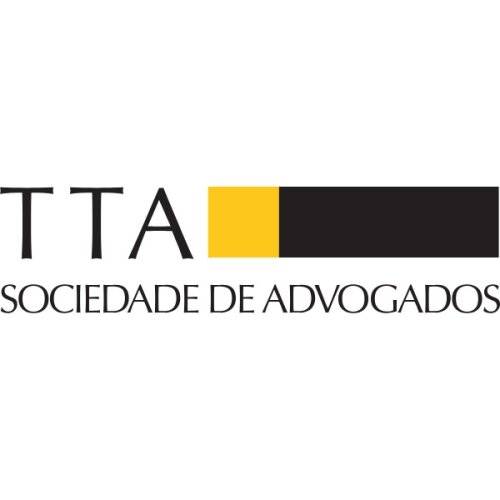Best Landlord & Tenant Lawyers in Maputo
Share your needs with us, get contacted by law firms.
Free. Takes 2 min.
Free Guide to Hiring a Real Estate Lawyer
List of the best lawyers in Maputo, Mozambique
About Landlord & Tenant Law in Maputo, Mozambique
Landlord and tenant law in Maputo, Mozambique governs the relationship between property owners (landlords) and individuals or entities renting residential or commercial properties (tenants). These laws cover various aspects such as lease agreements, rental payments, tenant rights and responsibilities, landlord obligations, dispute resolution, and eviction procedures. This legal framework aims to facilitate fair and balanced relationships between landlords and tenants, fostering a harmonious living and business environment.
Why You May Need a Lawyer
Several situations can arise that may necessitate the expertise of a lawyer specializing in landlord and tenant law:
- Disputes over lease terms: A lawyer can help clarify and resolve disagreements regarding lease terms and conditions.
- Evictions: Legal assistance may be necessary if either party needs to initiate or contest an eviction process.
- Rent non-payment: Lawyers can provide guidance on how to handle situations where rent is not being paid on time.
- Maintenance and repairs: If disputes arise over property maintenance and repair responsibilities, a lawyer can mediate and provide legal solutions.
- Unlawful conduct: Tenants or landlords engaging in illegal activities may require legal intervention to protect the interests of the other party.
- Lease termination: Terminating a lease agreement prematurely can lead to disputes, which may need a lawyer's expertise to resolve.
- Discrimination and harassment: Legal help may be needed if either party faces discrimination or harassment.
Local Laws Overview
The key aspects of local laws affecting landlord and tenant relationships in Maputo, Mozambique, include:
- Lease Agreements: Contracts must clearly state the terms of the tenancy, including the duration, rent amount, payment schedule, and responsibilities of both parties.
- Rent Control: Local laws may impose regulations on rent increases to protect tenants from unreasonable hikes.
- Tenant Rights: Tenants have the right to a habitable living environment, privacy, and protection from unfair eviction practices.
- Landlord Obligations: Landlords are required to maintain the property in a safe and habitable condition and make necessary repairs promptly.
- Eviction Procedures: Legal procedures must be followed for evictions, ensuring due process and protection for tenants.
- Security Deposits: Guidelines on the collection, use, and return of security deposits are regulated to prevent misuse by landlords.
- Dispute Resolution: Mechanisms for resolving disputes between landlords and tenants, including mediation and court proceedings, are provided under the law.
Frequently Asked Questions
1. What should a lease agreement include?
A lease agreement should clearly state the tenancy terms, including the duration, rent amount, payment schedule, security deposit details, maintenance responsibilities, and any other relevant conditions.
2. Can my landlord increase my rent anytime?
No, landlords must adhere to the local laws governing rent increases, which typically require written notice and adherence to any rent control regulations in place.
3. What can I do if my landlord refuses to make repairs?
If your landlord refuses to make necessary repairs, you can seek legal advice to understand your rights and potentially take legal action to compel the landlord to fulfill their obligations.
4. How much notice must I give before moving out?
The notice period is usually specified in the lease agreement. If not, local law may dictate a standard period, commonly 30 days, but this can vary.
5. Can my landlord evict me without notice?
No, landlords must follow legal procedures for eviction, which include providing proper notice and, in some cases, obtaining a court order.
6. What are my rights if my landlord enters my property without permission?
Tenants have the right to privacy. Landlords must provide reasonable notice and have a valid reason to enter the property, except in emergencies.
7. How is my security deposit handled?
Security deposits are typically held by the landlord to cover any damages or unpaid rent. Local laws may stipulate how these deposits should be managed and returned after the lease ends.
8. Can I sublet my rental property?
Subletting is usually governed by the terms of the lease agreement. You may need your landlord's consent to sublet the property legally.
9. What should I do if I’m being harassed by my landlord?
If you’re being harassed by your landlord, you should document the incidents and seek legal advice on how to proceed. You may also file a complaint with local authorities.
10. Where can I go for help with a landlord-tenant dispute?
For help with a landlord-tenant dispute, you can consult a lawyer specializing in this field, contact local tenant advocacy groups, or seek assistance from government agencies that handle housing issues.
Additional Resources
Here are some resources that may be helpful for those seeking legal advice in landlord and tenant matters in Maputo, Mozambique:
- Ministry of Public Works, Housing, and Water Resources: Responsible for housing policies and regulations.
- Local Legal Aid Clinics: Provide free or low-cost legal services to eligible individuals.
- Tenant Advocacy Organizations: Offer support, advice, and representation for tenants.
- Municipal Housing Authorities: Handle tenant-landlord issues and disputes at the local level.
Next Steps
If you need legal assistance in landlord and tenant matters, consider the following steps:
- Consult a Lawyer: Seek out a lawyer who specializes in landlord and tenant law to get professional advice and representation.
- Gather Documentation: Collect all relevant documents, including lease agreements, correspondence, and records of any disputes or issues.
- Understand Your Rights and Obligations: Familiarize yourself with local landlord and tenant laws to better understand your position.
- File a Complaint: If necessary, file a complaint with local housing authorities or regulatory bodies.
- Attend Mediation: Consider mediation as an alternative to resolve disputes amicably and quickly without proceeding to court.
Taking these steps can help you navigate landlord and tenant issues effectively and protect your legal rights.
Lawzana helps you find the best lawyers and law firms in Maputo through a curated and pre-screened list of qualified legal professionals. Our platform offers rankings and detailed profiles of attorneys and law firms, allowing you to compare based on practice areas, including Landlord & Tenant, experience, and client feedback.
Each profile includes a description of the firm's areas of practice, client reviews, team members and partners, year of establishment, spoken languages, office locations, contact information, social media presence, and any published articles or resources. Most firms on our platform speak English and are experienced in both local and international legal matters.
Get a quote from top-rated law firms in Maputo, Mozambique — quickly, securely, and without unnecessary hassle.
Disclaimer:
The information provided on this page is for general informational purposes only and does not constitute legal advice. While we strive to ensure the accuracy and relevance of the content, legal information may change over time, and interpretations of the law can vary. You should always consult with a qualified legal professional for advice specific to your situation.
We disclaim all liability for actions taken or not taken based on the content of this page. If you believe any information is incorrect or outdated, please contact us, and we will review and update it where appropriate.













